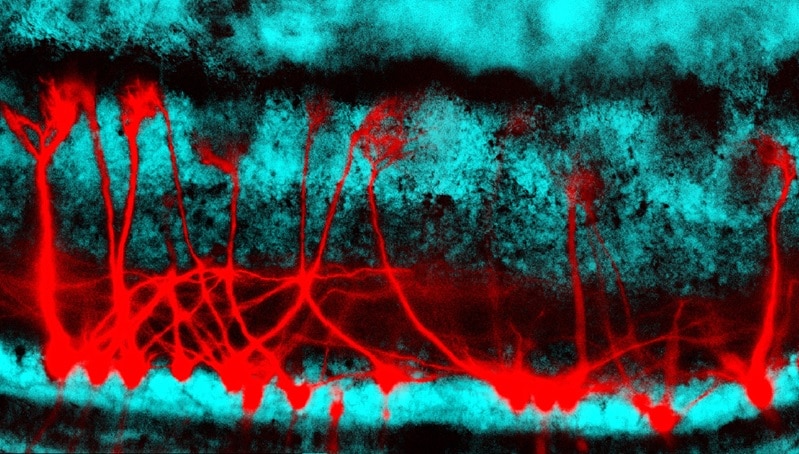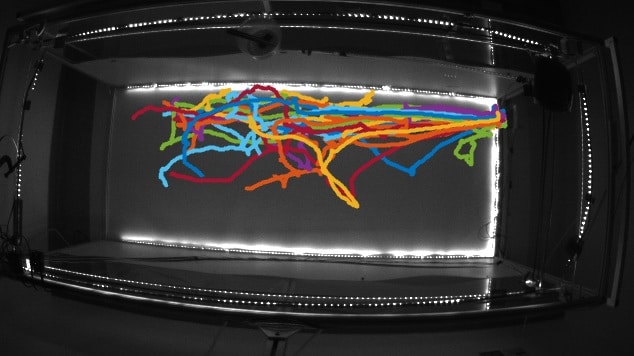
Our goals
Our brains utilize noisy, fluctuating sensory signals from the surrounding environment to guide valuable behaviors such as finding food or avoiding danger. This ability is adapted to both the statistical structure of sensory input as well as the changing behavioral demands of a given situation. Working across a variety of species we seek to define the fundamental neural circuit operations that support complex and flexible behavioral responses to natural sensory stimuli.
Complex decision-making
Animals combine memory and perception to generate complex natural behaviors.

Our approach
We employ ecologically-relevant, self guided tasks combined with advanced behavioral tracking and neurophysiological recording techniques to understand how neural systems control behavior in the real world. Using custom-built technology we engage animals in behaviors such as odor-guided foraging and memory-based navigation.
Comparative models of cognition
Through 500 million years of evolution divergent from the vertebrate lineage the octopus has evolved a nervous system capable of impressive feats of body control, cognition and camouflage.
Techniques and development
We have developed new approaches to solve a variety of problems that arise when implementing complex, self-guided behaviors in the lab. We work extensively with the open source community and are happy to share both the technology and software we have developed.
Human Cognition
Read more
Please contact us through this form.